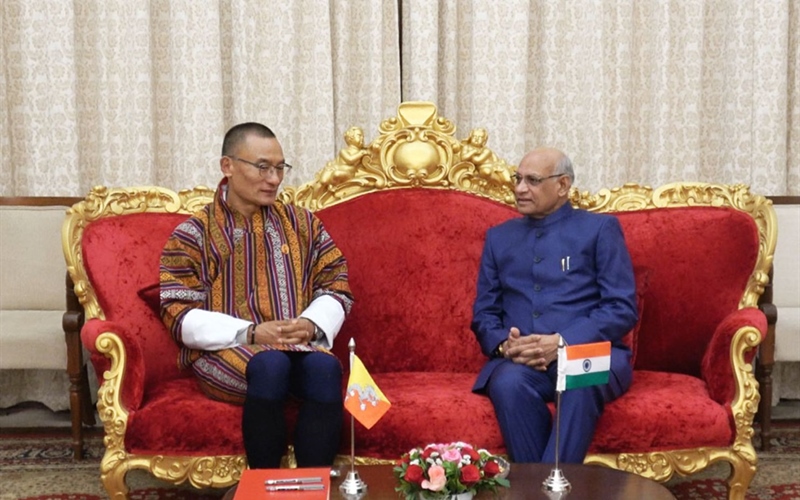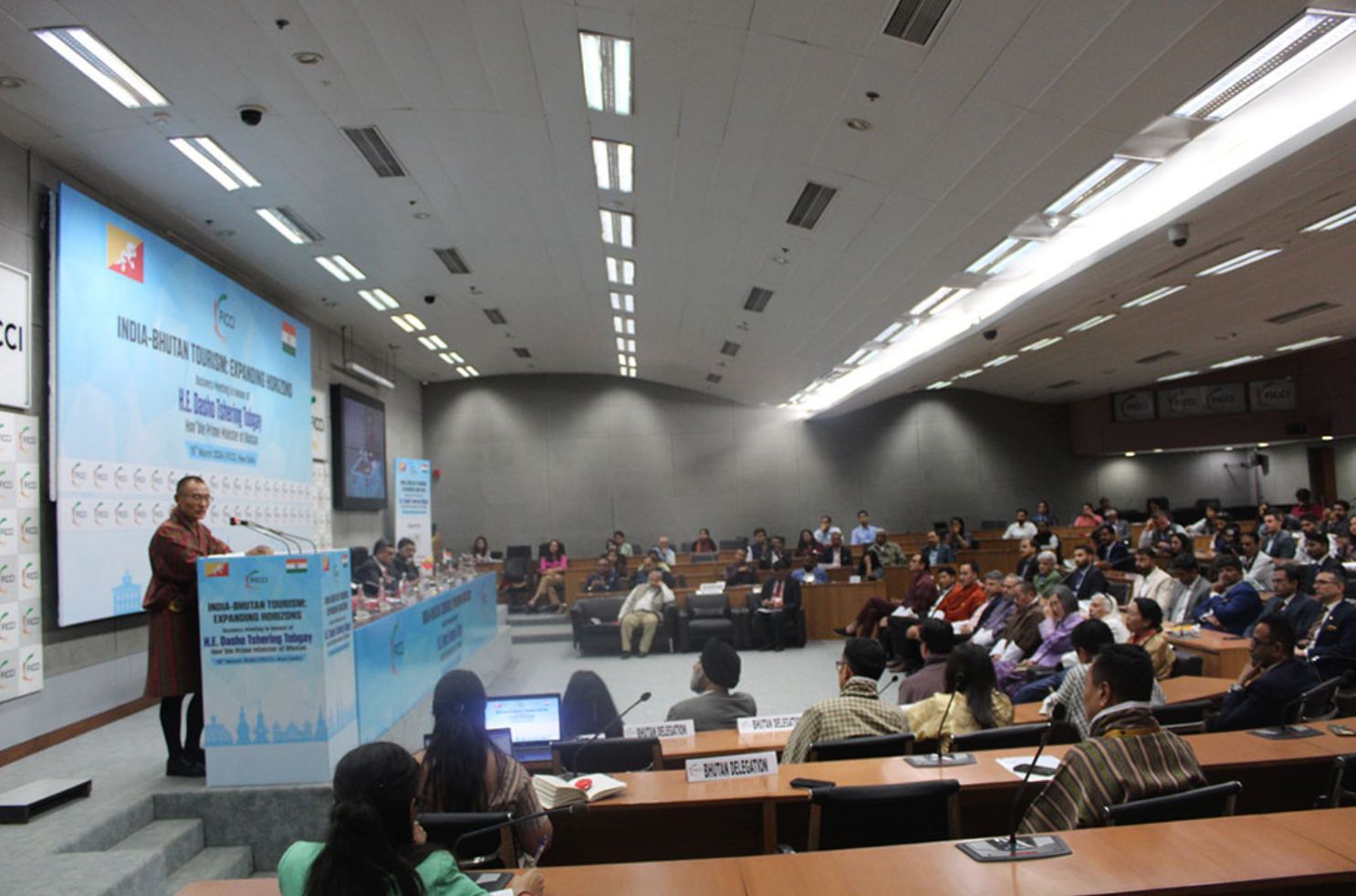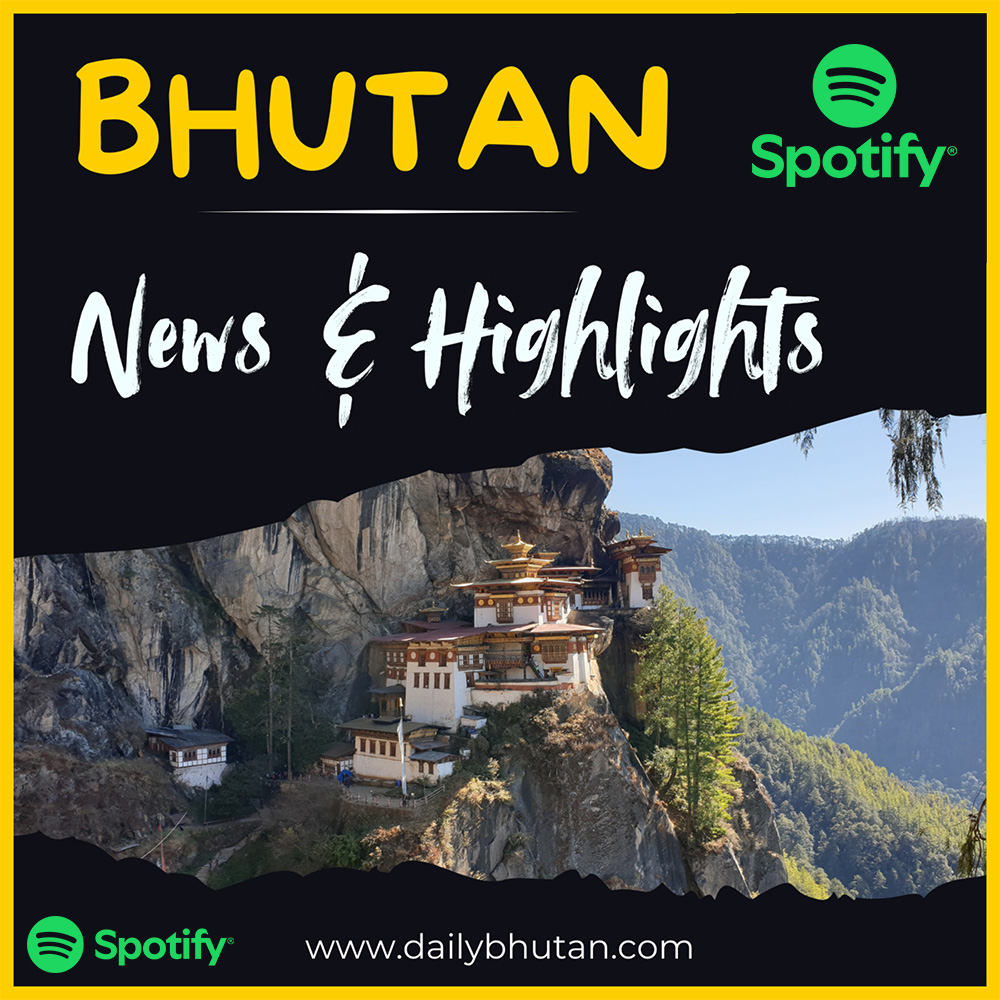India-Bhutan Relations: Prime Minister Tshering Tobgay Official Visit to India
At the request of Prime Minister Shri Narendra Modi, Prime Minister of Bhutan H.E. Tshering Tobgay, accompanied by his wife H.E. Tashi Doma, made an official trip to India from March 14th to 18th, 2024.

This marks Prime Minister Tshering Tobgay's inaugural international visit since assuming office in January 2024. The governments of both countries agreed to collaborate on various fronts during the 13th plan.
In a joint statement, the Prime Ministers acknowledged the robust ties between their nations and their significance for regional stability and prosperity. The enduring friendship between India and Bhutan, founded on mutual trust and comprehension, was highlighted.
Prime Minister Modi commended Bhutan for effectively handling the challenges posed by the Covid-19 pandemic, particularly lauding its graduation from the Least Developed Countries (LDC) category in December 2023. He also praised Bhutan's successful execution of the 12th Five-Year Plan (FYP) and reiterated India's commitment to aiding Bhutan in its economic endeavors.
India's Support Towards Bhutan's Development
Furthermore, Prime Minister Modi expressed admiration for His Majesty's vision of Gelephu Mindfulness City, recognizing its potential to drive economic growth in Bhutan and the surrounding region. Prime Minister Tshering Tobgay expressed gratitude for India's support, particularly the INR 5000 crores development grant for Bhutan's 12th Five-Year Plan, which significantly contributed to enhancing Bhutan's social and economic welfare through infrastructure development, improved connectivity, and investments in key sectors such as agriculture, healthcare, education, and cultural preservation.
The joint statement emphasized the leaders' dedication to bolstering economic cooperation, particularly in the hydro-power sector, a longstanding cornerstone of bilateral partnership. They instructed officials to expedite discussions on new hydro-power projects and expressed satisfaction with the progress of ongoing projects like the Punatshangchhu-II hydro-power project.
Acknowledging the necessity to diversify energy sources, both sides agreed to broaden cooperation to encompass solar and wind energy, alongside initiatives for hydrogen and e-mobility, as well as energy efficiency and conservation measures.
Strengthening India-Bhutan Cooperation
Additionally, the signing of a Memorandum of Understanding (MoU) for concessional financing of INR 1500 crores for GyalSung, Bhutan’s National Service Program, underscores India's commitment to supporting Bhutan's youth development initiatives.
Space technology collaboration and enhancing connectivity, including rail and road infrastructure development, were discussed. Progress on establishing rail-links between Banarhat-Samtse and Kokrajhar-Gelephu is anticipated to enhance physical connectivity.
Both countries emphasized collaboration in emerging fields such as digital technology, start-ups, and STEM education to bolster people-to-people relations and foster innovation.
Prime Minister Modi accepted an invitation from Prime Minister Tshering Tobgay to visit Bhutan on behalf of His Majesty the King, further solidifying bilateral ties.
Attracting Regional Tourists To Boost Bhutan's Tourism
During his stay in Mumbai, Lyonchhen attended a tourism event, focusing on enhancing collaboration in the tourism sector between India and Bhutan. Lyonchhen also met with the governor of Maharashtra to explore enhancing cooperation between Bhutan and the state, followed by a dinner hosted in his honor. Additionally, Lyonchhen engaged with leading businessmen in Mumbai to discuss opportunities for collaboration and business expansion in Bhutan.

Prime Minister Tashi Tobgay also engaged in crucial discussions with Indian tour companies, aiming to revitalize Bhutan's tourism sector, which has been struggling post-Covid-19 pandemic. The focus was on developing strategies to attract more tourists to Bhutan and facilitate their visits to the country.
Discussions included collaborative efforts on advertising, promotions, and travel deals to enhance Bhutan's appeal as a tourist destination. The Prime Minister's proactive approach aligns with his commitment to promote Bhutan abroad.
At an event organized by FICCI, he emphasized the economic significance of tourism to Bhutan and expressed gratitude to Indian partners for their support. He encouraged tour operators to provide feedback on improving tourist services and welcomed innovative ideas in line with Bhutan's cultural and environmental ethos. Special initiatives, such as reduced Sustainable Development Fee (SDF) for regional tourists and streamlined visa processing, were highlighted to make Bhutan more accessible.
However, the Prime Minister stressed the importance of maintaining a balance between tourism expansion and preserving Bhutan's unique heritage through a "High value, Low volume" approach. Discussions with Indian tour operators also touched upon challenges like limited flight options and the need to enhance hotel facilities and tourist amenities. The Prime Minister assured collaboration to address these concerns, highlighting plans to promote tourism in eastern Bhutan and diversify visitor experiences beyond traditional attractions.




